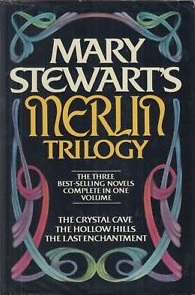
Uther Pendragon (Brittonic), also known as King Uther, was a legendary King of the Britons and father of King Arthur.
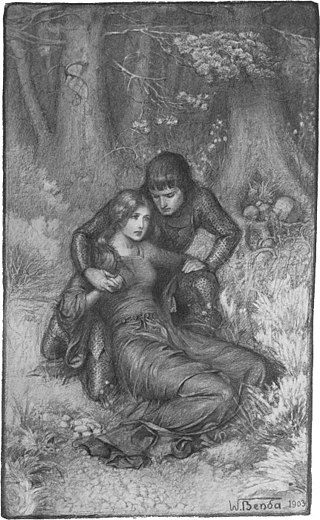
In the Matter of Britain, Igraine is the mother of King Arthur. Igraine is also known in Latin as Igerna, in Welsh as Eigr, in French as Ygraine, in Le Morte d'Arthur as Ygrayne—often modernised as Igraine or Igreine—and in Parzival as Arnive. She becomes the wife of Uther Pendragon, after the death of her first husband, Gorlois.
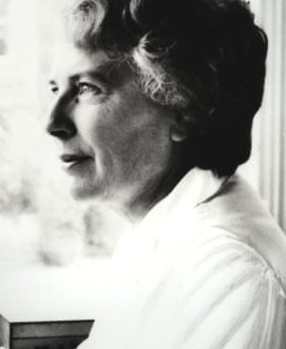
Mary, Lady Stewart was a British novelist who developed the romantic mystery genre, featuring smart, adventurous heroines who could hold their own in dangerous situations. She also wrote children's books and poetry, but may be best known for her Merlin series, which straddles the boundary between the historical novel and fantasy.

The Lady of the Lake is a name or a title used by several either mermaid or mermaid-like but human enchantresses in the Matter of Britain, the body of medieval literature and mythology associated with the legend of King Arthur. She plays several important roles in many stories, including providing Arthur with the sword Excalibur, eliminating Merlin, raising Lancelot after the death of his father, and helping to take the dying Arthur to Avalon. Different sorceresses known as the Lady of the Lake appear concurrently as separate characters in some versions of the legend since at least the Post-Vulgate Cycle and consequently the seminal Le Morte d'Arthur, with the latter describing them as a hierarchical group, while some texts also give this title to either Morgan or her sister.

Rosemary Sutcliff was an English novelist best known for children's books, especially historical fiction and retellings of myths and legends. Although she was primarily a children's author, some of her novels were specifically written for adults. In a 1986 interview she said, "I would claim that my books are for children of all ages, from nine to ninety."

Excalibur is a 1981 epic medieval fantasy film directed, co-written and produced by John Boorman, that retells the legend of King Arthur and the knights of the Round Table, based loosely on the 15th-century Arthurian romance Le Morte d'Arthur by Thomas Malory. It stars Nigel Terry as Arthur, Nicol Williamson as Merlin, Nicholas Clay as Lancelot, Cherie Lunghi as Guenevere, Helen Mirren as Morgana, Liam Neeson as Gawain, Gabriel Byrne as Uther and Patrick Stewart as Leondegrance. The film is named after the legendary sword of King Arthur that features prominently in Arthurian literature. The film's soundtrack features the music of Richard Wagner and Carl Orff, along with an original score by Trevor Jones.
Morgause is a popular variant of the figure of the Queen of Orkney, an Arthurian legend character also known by various other names and appearing in different forms of her archetype. She is notably the mother of Gawain and often also of Mordred, both key players in the story of her brother King Arthur and his downfall. Her other children may include Agravain, Gareth and Gaheris.

In Arthurian legend, Gorlois of Tintagel was the Duke of Cornwall. He was the first husband of King Arthur's mother Igraine and the father of her daughters, Arthur's half-sisters. Her second husband was Uther Pendragon, the High King of Britain and Arthur's father, who marries her after killing him.
This is a bibliography of works about King Arthur, his family, his friends or his enemies. This bibliography includes works that are notable or are by notable authors.
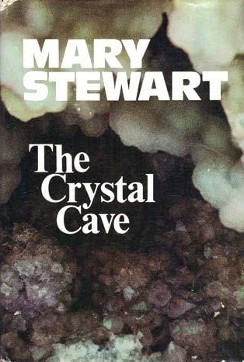
The Crystal Cave is a 1970 fantasy novel by Mary Stewart. The first in a quintet of novels covering the Arthurian legend, it is followed by The Hollow Hills.
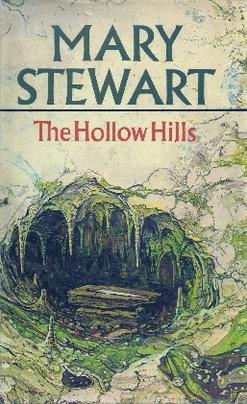
The Hollow Hills is a novel by Mary Stewart. It is the second in a quintet of novels covering the Arthurian Legends. This book is preceded by The Crystal Cave and succeeded by The Last Enchantment. The Hollow Hills was published in 1973.

The Last Enchantment is a 1979 fantasy novel by Mary Stewart. It is the third in a quintet of novels covering the Arthurian legend, preceded by The Hollow Hills and succeeded by The Wicked Day.

The Prince and the Pilgrim is a 1995 fantasy novel by Mary Stewart. It is a stand-alone novel, has an oblique reference to King Arthur, and is not a part of Stewart's Merlin Trilogy. It marked Stewart's return to the Arthurian genre a decade after her last book on the subject.

Child of the Northern Spring is the first novel in Persia Woolley's Guinevere trilogy, about the Arthurian legend. The novel is written in first person perspective narrated by Guinevere in the form of a frame narrative.
Stories involving the mythical wizard Merlin have been popular since the Renaissance, especially with the renewed interest in the legend of King Arthur in modern times. As noted by Arthurian scholar Alan Lupack, "numerous novels, poems and plays center around Merlin. In American literature and popular culture, Merlin is perhaps the most frequently portrayed Arthurian character."
Pendragon's Banner is an historical fantasy trilogy by the British author Helen Hollick, published by William Heinemann in 1994, and later by Sourcebooks Inc in 2009 and by SilverWood Books in 2011. The three books are a re-telling of the King Arthur legend. They look to show Arthur Pendragon as he might have really been - no magic, fantasy or medieval legend. This is the basic, post-Roman view of Arthur as a battle-hardened warlord.
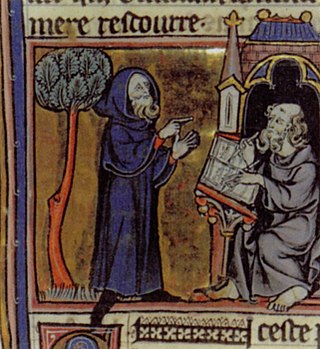
Merlin is a partly lost French epic poem written by Robert de Boron in Old French and dating from either the end of the 12th or beginning of the 13th century. The author reworked Geoffrey of Monmouth's material on the legendary Merlin, emphasising Merlin's power to prophesy and linking him to the Holy Grail. The poem tells of his origin and early life as a redeemed Antichrist, his role in the birth of Arthur, and how Arthur became King of Britain. Merlin's story relates to Robert's two other reputed Grail poems, Joseph d'Arimathie and Perceval. Its motifs became popular in medieval and later Arthuriana, notably the introduction of the sword in the stone, the redefinition of the Grail, and turning the previously peripheral Merlin into a key character in the legend of King Arthur.
Merlin and the Dragons is a 1991 animated film adapted from a story by Jane Yolen and illustrations by Alan Lee. It was directed by Dennis Woodyard and Hu Yihong and includes a musical score by composer Michel Rubini. The production is a retelling of the Arthurian legend, with Merlin the magician, based on material from Nennius and Geoffrey of Monmouth. Yolen is a prolific author of Arthurian-themed texts, and this production continues her series of retellings of the Merlin story. The half-hour film is narrated and voiced by Kevin Kline and was originally broadcast as an episode of the PBS program Long Ago and Far Away, which first aired on November 9, 1991.

The Sons of Avalon Saga is a series of Arthurian Legend novels, by American novelist, Dee Marie. The first book in the series, Sons of Avalon, Merlin’s Prophecy, begins with the birth of Merlin, and ends with the conception of King Arthur. Future books in the series explore the birth and life of King Arthur and his court.
